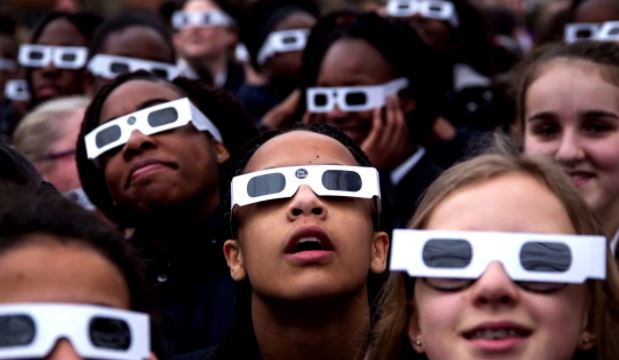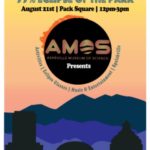It’s going to be a dark day. But only for a short time.
We’re talking, of course, about the solar eclipse Asheville (and much of the United States) will experience Aug. 21.
According to the Astronomy Club of Asheville, the solar eclipse will begin at 1:08 p.m. The mid-point of the eclipse will happen at 2:38 p.m. and it will be over around 4 p.m.
Such a rare event affords a unique viewing opportunity! The City of Asheville has issued a permit in Pack Square Park for Asheville’s Solar Eclipse Festival from noon to 3 p.m. Aug. 21. The Asheville Museum of Science (AMOS), UNC Asheville, Asheville City Schools and Buncombe County Schools will co-host an afternoon of festivities in the park with music, food and fun hands-on eclipse-related activities. As many as 3,500 people are expected for this event. Proper eye protection will be distributed throughout the event to ensure participants will be able to safely view the eclipse.
UNC Asheville’s Lookout Observatory webpage offers useful eclipse fast facts, local information and a countdown clock.
Safety first
It is IMPORTANT to view the eclipse with proper eye protection to avoid eye damage or even blindness. A pinhole projector or eclipse glasses are highly recommended to avoid potential blindness. Beware of fake solar eclipse glasses being sold as the real thing. How can you tell? Look for “ISO certified” glasses stamped on them, for one thing, and that they come from a reputable vendor. Verified eclipse glasses are covered in silver film to block out harmful rays.
NASA offers these tips on how to view a solar eclipse safely.
The N.C. Highway Patrol warns motorists not to wear the glasses while driving and certainly to not try to take a photo of the eclipse while driving.
For more information about the solar eclipse, visit www.greatamericaneclipse.com or the Astronomy Club of Asheville website.
Here’s a video by Buncombe County that explains how a solar eclipse works:
More coverage:
Don Cline, founder of Pisgah Astronomical Research Institute, discusses the total eclipse.
Solar eclipse in North Carolina

